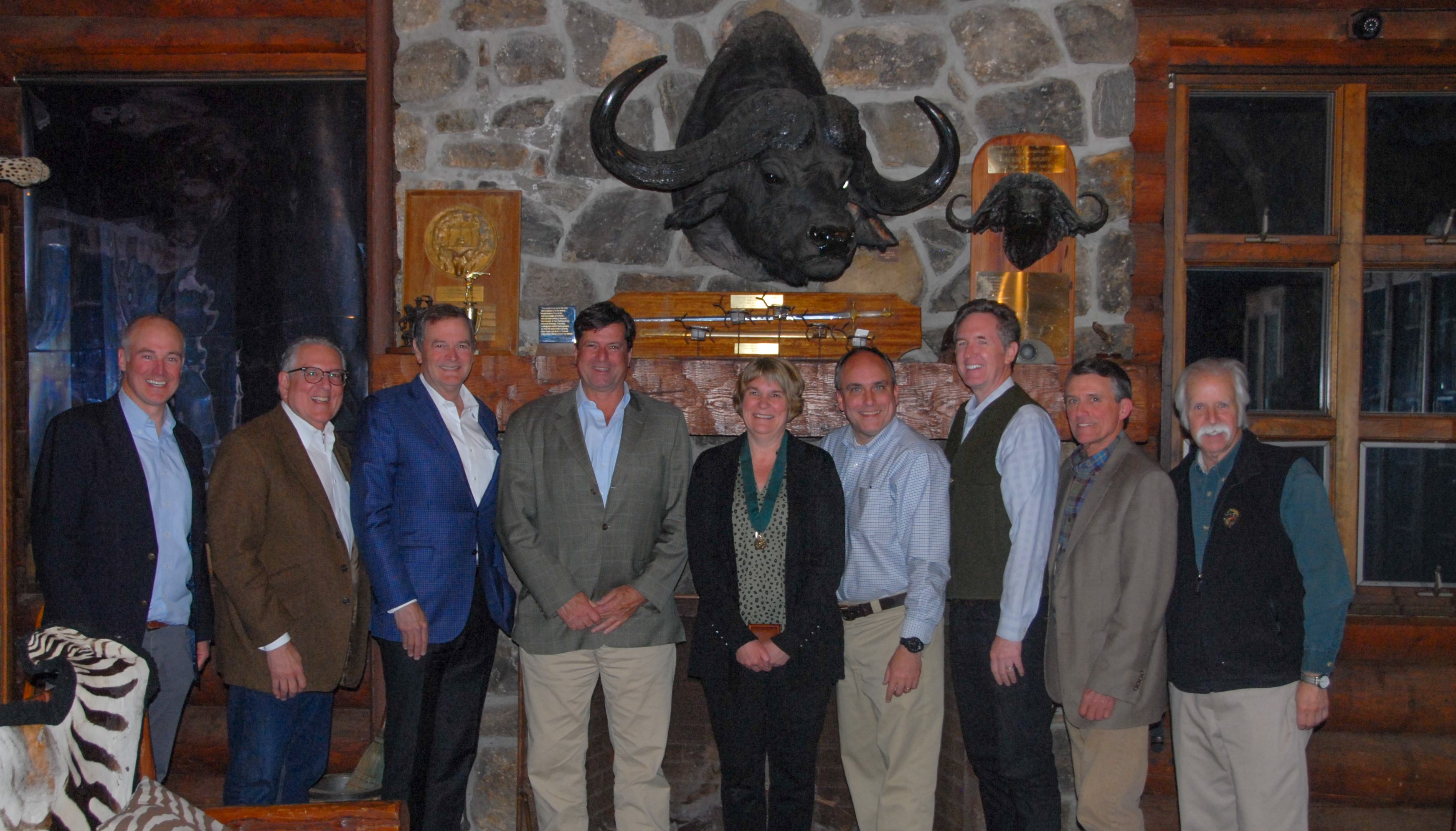Recent Headlines

Dr. Jacqueline Frair receives the Peter Roemer Award from the Camp Fire Conservation Fund.
Camp Fire Conservation Fund Honors ESF’s Dr. Jacqueline Frair with the Peter Roemer Award
SYRACUSE, New York – The SUNY College of Environmental Science and Forestry (ESF) – one of the nation’s premier colleges focused exclusively on the study of the environment, developing renewable technologies, and building a sustainable future – is pleased to announce that Dr. Jacqueline Frair has been honored by the Camp Fire Conservation Fund with the Peter Roemer Award.
The award recognizes Dr. Frair’s dedication and lifetime of work in the field of conservation. This is only the fourth time this award has been presented since its inception in 2007.
“Dr. Frair’s dedication to wildlife conservation has made a lasting impact on the preservation of our natural world,” said ESF President Joanie Mahoney. “Her work is a testament to the power of knowledge, passion, and the difference one individual can make.”
The Camp Fire Conservation Fund created the award to honor Peter Roemer – a devout conservationist, charter associate member of the Boone and Crockett Club, and a member of both the Explorers Club and the Camp Fire Club of America – in recognition of his dedication and lifetime of work in the field of conservation. The award is designed to honor individuals who further the cause of conservation in the spirit of Roemer and in keeping with the Fund’s objectives including the conservation and preservation of wilderness.
Frair is the associate chair of ESF’s Department of Environmental Biology and director of the Roosevelt Wild Life Station, which promotes the integration of science and management on the front lines of conservation.
“The Camp Fire Professorship in Wildlife Conservation at SUNY ESF could not have been established without the vision, commitment and unwavering perseverance of Dr. Jacqui Frair. She spearheaded the initial effort in 2012 and saw it through until it’s formal beginnings in the Fall of 2018. Jacqui stepped up to the plate in 2022 with the same zealousness to help re-fill the position. I and all my colleagues at the Camp-Fire Club of America are in awe of Jacqui’s devotion to this effort and conservation as a whole in our modern-day society,” said Camp Fire Club’s Preston Bruenn. “Having known Peter Roemer personally, I can honestly say he would have been proud to have worked with Dr Frair and even prouder to bestow honors upon her for her conservation efforts.”
As a wildlife biologist, Frair seeks to understand the forces structuring the distribution and abundance of wild animals. Her research interests lie in how primarily large animals both respond to and influence environmental change, with an emphasis on the ecology of animal movement, and with a goal of informing effective conservation action. Her teaching focuses on how to use science to inform effective wildlife management, and her work at the Roosevelt Wild Life Station involves promoting the integration of science and management on the front lines of conservation.
Frair has more than 60 peer-reviewed publications and consistently obtains grants and funding to support research and projects worldwide, including the Endowment for the Camp Fire Conservation Fund Professorship in Wildlife Conservation at ESF.
The Camp Fire Program in Wildlife Conservation is an interdisciplinary team of graduate students, post-doctoral scholars, and faculty at ESF that works at the nexus of conservation science and policy to address contemporary issues of national and international relevance in wildlife conservation.
About SUNY ESF
The SUNY College of Environmental Science and Forestry (ESF) is dedicated to the study of the environment, developing renewable technologies, and building a sustainable and resilient future through design, policy, and management of the environment and natural resources. Members of the College community share a passion for protecting the health of the planet and a deep commitment to the rigorous application of science to improve the way humans interact with the world. The College offers academic programs ranging from the associate of applied science to the Doctor of Philosophy. ESF students live, study and do research on the main campus in Syracuse, N.Y., and on 25,000 acres of field stations in a variety of ecosystems across the state.
About the Camp Fire Conservation Fund
The mission of the Camp Fire Conservation Fund is to promote the conservation and preservation of wilderness and other natural and recreational resources, and to promote big-game hunting, by means of direct financial sponsorship of conservation and other hunting and outdoor-related activities, through financial aid to other organizations or entities supporting such activities, and to assist by way of grants in financial aid to qualified students at the undergraduate and graduate levels to those fields of study which, in the opinion of the Board of Directors of the Fund, are consistent with the Fund’s mission.